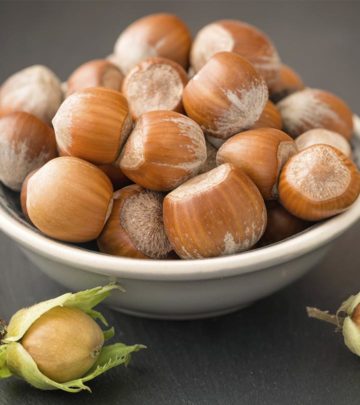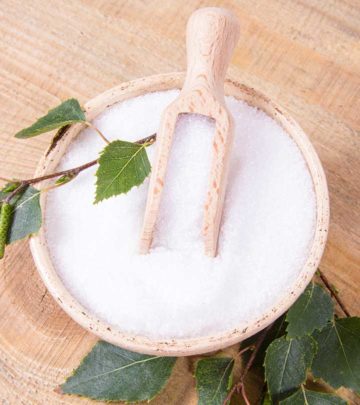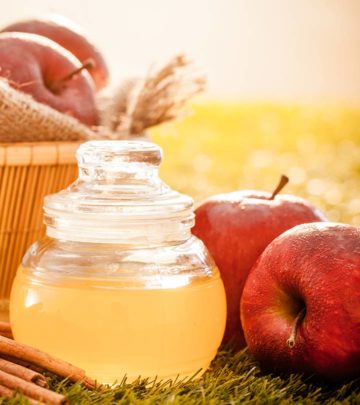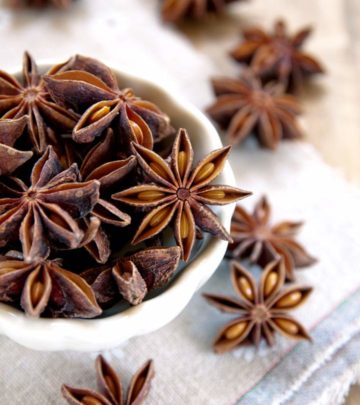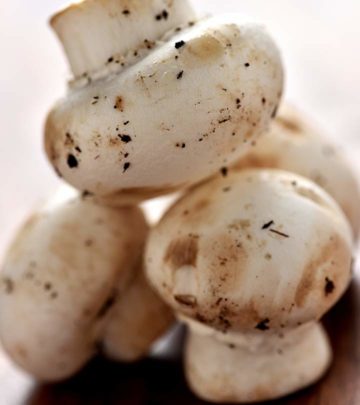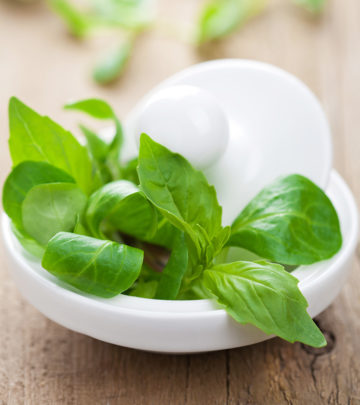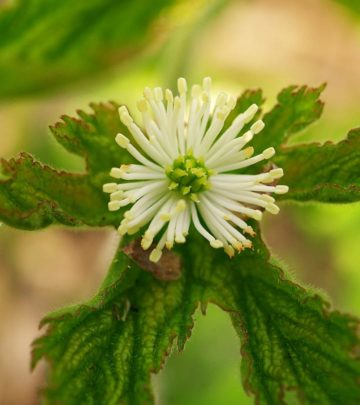Propolis: Benefits, Facts, And Tips
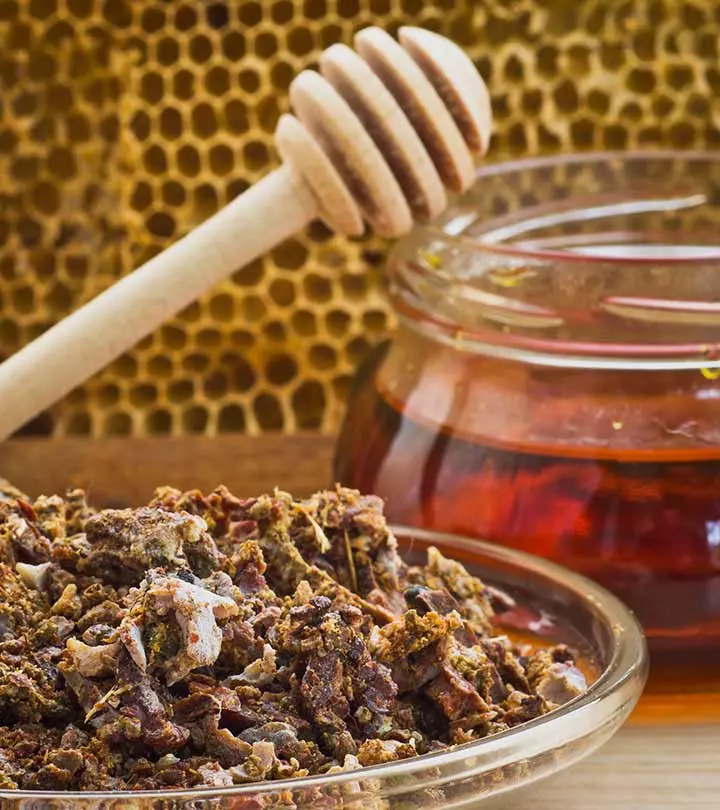
Image: Shutterstock
Honeybees have been a subject of interest for varying reasons. The hierarchy, discipline, symmetry, unity, and several other aspects of these creatures are noteworthy. While these values inspire the human resource management gurus, the bee by-products are of great importance to the scientists. This article discusses the benefits of propolis, a bee-based by-product.
Propolis is a natural gummy resin found on the walls of beehives. Like honey, beeswax, and royal jelly, propolis has many therapeutic applications. From soothing a sore throat to boosting your immunity, propolis can do a lot for your health. Would you want to know more about propolis? Start scrolling down and lap up the awesomeness!
In This Article
What Is Propolis? What Is Its Origin?
In Greek, “pro” means “at the entrance to” and “polis” means “community” or “city.” Propolis is a natural product used in hive defense by the honeybees. It is also known as bee glue – for obvious reasons.
Propolis is a natural resin-like mixture synthesized by the bees. They collect the lipophilic materials on leaves and leaf buds, mucilages, gums, resins, lattices, pollen, waxes, and large amounts of plant-based flavonoids from different plants at different temperate climatic zones. These are mixed with beeswax and bee salivary enzymes (β-glucosidase) (1), (2).
As this natural resin has a waxy texture, the bees use propolis in the construction and repair of their hives. It is used for sealing the cracks and smoothing out the internal walls. Propolis also offers protection from invading predators, microbes, snakes, lizards, and extreme climate (3).
The smart Egyptians, Greeks, Incas, Romans, and contemporary civilizations used propolis as a preservative, antiseptic, antipyretic, disinfectant, and vulnerary agent (1).
Read on to discover what makes propolis rich and valuable.
What Is Propolis Made Of?
The composition of propolis depends on the various plants the bees have collected it from. It is generally composed of 50% resin, 30% wax, 10% essential oils, 5% pollen, and 5% miscellaneous substances (3).
The miscellaneous 5% includes minerals and organic compounds. There are phenolic acids, their esters, flavonoids, terpenes, aromatic aldehydes and alcohols, fatty acids, β-steroids, and stilbenes. Flavonoids such as genistein, quercetin, kaempferol, luteolin, chrysin, galagin, and apigenin are the most active components (3), (4).
What’s noteworthy is the varying composition of propolis with geography and climate. Meaning, if you examine propolis from Europe, you will find phytochemicals like pinocembrin, pinobanksin, chrysin, galangin, caffeic acid, ferulic acid, and cinnamic acid (3).
On the other hand, Australian propolis would have pinostrobin, xanthorrheol, pterostilbene, sakuranetin, stilbenes, prenylated tetrahydroxy stilbenes, and prenylated cinnamic acids (3).
This beautiful diversity is attributed to the host plant species. Researchers claim that the color of propolis differs from region-to-region. It might be red, brown, green, or similar shades, and it also changes with age.
How will it help you counter the effects of age? What benefits can propolis offer to your body?
Looking for answers to such questions? Just scroll down!
In What Ways Is Propolis Beneficial For Your Health?
1. Heals Wounds, Burns, And Acne
Wound healing is a finely tuned complex cascade of phases like hemostasis, inflammation, cell proliferation, and tissue remodeling.
The flavonoid content of propolis brought about accelerated wound healing in in-vitro studies. It regulates the extracellular matrix (ECM) components according to the phase of wound repair (4).
Diabetic animal wounds too healed quicker with a single propolis topical application (4). Interestingly, in patients who underwent tonsillectomy, propolis reduced postoperative pain and hemorrhage, without any side effects (5).
A study demonstrated the antibacterial action of propolis on acne vulgaris. This study used a product with propolis (20%), tea tree oil (3%), and aloe vera (10%) on different skin types. Caffeic acid, benzoic acid, and cinnamic acid residues in propolis showed potent antibacterial and anti-inflammatory properties. This product effectively reduced acne and erythematous scars better than the synthetic counterpart (6).
2. Helps In Treating Periodontal Disease And Promotes Oral Health
Due to its antibacterial and anti-inflammatory properties, propolis can help in preventing dental caries, cavities, gingivitis, and periodontal disease (7).
Some oral bacteria (e.g.: Streptococcus mutans) colonize on the tooth surface and form dental plaques. They do so by synthesizing polysaccharides from sucrose, water-insoluble glucan, etc. The polyphenols in propolis block the bacterial enzymes involved in forming the dental plaques (7).
A 50% propolis extract exhibited antiseptic effects against pulp gangrene in rats. It interacts with synthetic compounds in mouthwashes, like chlorhexidine, to kill various dental microbes and prevent their adhesion and accumulation (7).
3. Manages Alopecia And Improves Hair Growth
Alopecia or hair loss may occur when a person loses more than 100 hairs per day. Many women and men are affected by this dermatologic disorder. Several hair growth promoters, oral and topical, have been approved by the FDA to solve this crisis. However, natural remedies seem to be safer and rewarding in this case (8).
In vitro experiments showed that hair wax made of propolis and arugula promoted hair growth in animals. High polyphenolic content could be the reason behind this property (8).
Propolis flavonoids improve blood circulation and nourishment of the hair follicles.
Sometimes, inflammation and microbial infections can cause alopecia. Propolis phytochemicals can be the ideal anti-inflammatory and antifungal agents that prevent hair loss (8).
4. Might Prevent Cancer Progression
Mouse studies demonstrated the anticancer role of propolis polyphenols. Caffeic acid, quercetin, chrysin, artepillin C, nemorosone, galangin, cardanol, and caffeic acid phenethyl ester have cytotoxic and antiproliferative effects (9).
Propolis has shown efficacy against breast, liver, pancreas, brain, head and neck, skin, kidney, bladder, prostate, colon, and blood cancers. This effect is attributed to the antioxidant effect of the resin (1), (10).
Also, the active ingredients in bee glue induce programmed cell death (apoptosis and mass necrosis), abort cell division, aid anti-angiogenesis (stop the tumors from developing their own blood cells), prevent metastasis (spreading), and moderate chemotherapy-induced adverse effects. Of all the ingredients, chrysin and caffeic acid phenethyl ester (CAPE) are identified as key (9).
CAPE targets oral tumor cells along with the protein cascades operating in/around them. Chrysin demonstrates anti-inflammatory and caspase enzyme-inducing effects on blood and other cancer cells (9).
5. Eliminates Bacteria, Fungi, And Viruses
Bee glue is known to fight viral diseases like herpes and HIV-1. It is particularly effective against upper respiratory tract-infecting bacteria, especially those bacterial infections that overlap viral ones (11), (12).
This property can mainly be attributed to the flavonoids pinocembrin, galangin, and pinobanksin. These active compounds can arrest microbial cell division, collapse the cell wall and membrane, inhibit protein synthesis, and ultimately kill the pathogen.
There are ongoing studies to understand the mechanism behind the antifungal and antiviral activity of propolis. It is proposed that propolis interferes in the propagation of the virus at a molecular level (12).
Time For Trivia!
Brazilian propolis was found to be effective against vulvovaginal candidiasis (VVC). Applying propolis microparticles inhibited the growth of Candida albicans and related species in the vagina. It is said to prevent further infection of such yeast and fungi too (1).
Is this what the famous Brazilian skin wax contains? Yes!
These benefits prove how useful beehives and honeycombs can be. From bee glue to honey, all the products from the bees are of exceptional therapeutic value.
All of this is amazing. But, practically speaking, how can you make use of this bee glue? Is there a recommended way to take propolis?
The next section will answer your doubts. Keep scrolling!
How To Use Propolis
Propolis is easily available in the market. You can find it in the form of:
- Capsules – Buy here!
- Softgels – Buy here!
- Powder – Buy here!
- Lozenges – Buy here!
- Toothpaste – Buy here!
- Spray – Buy here!
- Cream – Buy here!
- Alcohol Extract – Buy here!
Most formulations can be applied topically. But you can ingest propolis capsules, softgels, or powder for general well-being. You can dilute propolis liquid with water to use it as a gargle or mouthwash.
Experimental studies quote a safe concentration for humans to be about 1.4 mg/kg/day or 70 mg/day (1).
However, we recommend medical supervision while using any of these supplements. Since it is a plant-and-insect derived product, some might be sensitive to propolis. If you are allergic to honey, pollen, or such products, there is a higher chance of you being allergic to propolis.
Look at the next section for more information.
What Are The Side Effects Of Propolis?
Propolis is a nontoxic natural resin. No lethal effects were documented against propolis, barring a few skin allergies. Contact dermatitis, rhinitis, and allergies are, however, rampant in beekeepers (1).
Since research waves a green flag, propolis is here to stay!
Wrapping It Up…
When the bees can do it, you can do it too! Start using propolis and its supplements for your well-being. It is one of the best natural immunity-boosters out there.
Choose this natural antioxidant and anti-inflammatory agent over soaps and synthetic face washes. Propolis can give you clear and blemish-free skin and strong hair and teeth.
Try the various supplements listed above and share your views about them. You can also send your feedback, suggestions, and queries using the box below.
Wishing you progress with propolis!
References
- “Propolis: A Wonder Bees Product and Its Pharmacological Potentials” Advances in Pharmacological Sciences, US National Library of Medicine.
- “Antibacterial properties of propolis (bee glue)” Journal of the Royal Society of Medicine, US National Library of Medicine.
- “Propolis: A Complex Natural Product with a Plethora of…” Evidence-based Complementary and Alternative Medicine, US National Library of Medicine.
- “Propolis: a new frontier for wound healing?” Burns & Trauma, US National Library of Medicine.
- “Effect of Topical Propolis on Wound Healing Process…” Clinical and Experimental Otorhinolaryngology, US National Library of Medicine.
- “Treatment of acne with a combination of propolis, tea…” Clinical Pharmacology: Advances and Applications, US National Library of Medicine.
- “Propolis in Oral Health: A Natural Remedy” World Journal of Pharmaceutical Sciences, Academia.
- “Preparation and evaluation of a hair wax containing…” Advanced Biomedical Research, US National Library of Medicine.
- “Review of the anticancer activities of bee products” Asia Pacific Journal of Tropical Biomedicine, US National Library of Medicine.
- “Emerging Adjuvant Therapy for Cancer…” Journal of Dietary Supplements, US National Library of Medicine.
- “Antibacterial activity of propolis and its active principles…” Journal of Chemotherapy, US National Library of Medicine.
- “Antiviral Properties of Propolis” SUNY Digital Repository, Dspace.
Community Experiences
Join the conversation and become a part of our vibrant community! Share your stories, experiences, and insights to connect with like-minded individuals.
Read full bio of Ariana Fiorita





